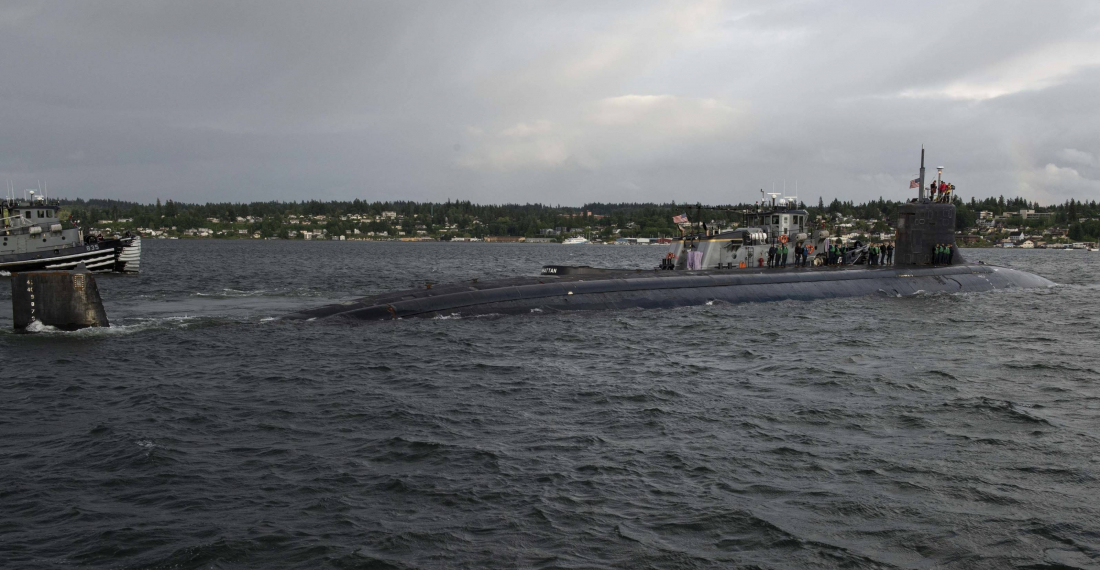The American attack nuclear submarine USS Connecticut hit an "unknown object" in international waters in the South China Sea, reports the US Pacific Fleet. According to a brief statement published on Thursday (7 October), the submarine was damaged but could continue its journey.
The statement said that at least eleven crew members were injured in the collision - two suffered moderate injuries and the rest had minor scrapes and bruises.
“The submarine remains in a safe and stable condition. USS Connecticut’s nuclear propulsion plant and spaces were not affected and remain fully operational.", US Pacific Fleet said.
The accident happened five days ago in international waters and has only now been announced not to jeopardise the mission. The incident also occurred at about the same time of an extensive training exercise by US allies with three aircraft carriers sailing in the nearby East Philippine Sea. The USS Connecticut has sailed to a base on Guam where further damage assessment is underway.
The incident comes at a time of rising tensions in the region. Recently, China has sent dozens of fighter jets and bombers into the airspace near Taiwan. Taiwan considers this to be intimidating.






